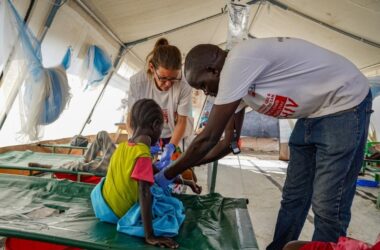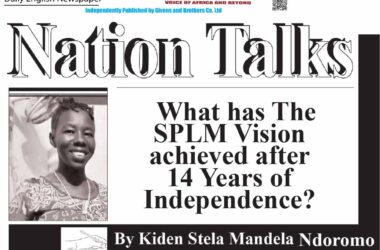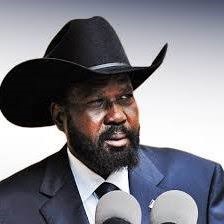
By William Madouk Garang
The National Ministry of Environment and Forestry has echoed that getting dredging facts right before project kicks off is necessary to avoid report of the bitter past of Juba-Rumbek Highway shoddy work alleged to Shyandong Hi Speed Company which was washed away by rains.
In May 2020, heavy rains flow destroyed the tarmac on the parts of 400 kilometer highway constructed by Shyandong Hi-Speed and the layers of gravel under asphalt were allegedly weak and easily washed off by water
This was revealed to media yesterday by Joseph Africano Bartel, Undersecretary in the Ministry of Environment and Forestry during presentation of ‘A rapid environmental assessment of the Sudd wetlands in South Sudan’ compiled by Senior Advisor, Peter T. Gilruth, PhD.
According to Bartel, his docket’s biggest fear is that Bahr el Ghazal River or Naam River is a basin and dredging it without conducting environmental social impact assessment will be very risky.
Speaking during the press conference yesterday, the Undersecretary in the Ministry of Environment and Forestry said Juba-Rumbek highway was a lesson learnt and same mistake shouldn’t be repeated.
“Good example was Juba-Rumbek road, people came there was no-objection letter that was given in 2012, somebody took letter of no-objection from ministry here attach it, to say it for construction of Shyandong Hi-speed and it was graded, water comes and all of you know what happened,” Bartel reminded.
“So, get it right first then you will be able to save a lot. Get it wrong from the beginning now they have to build the bridge on the crossing routes” he noted.
“I went for meeting and I told them please – yes, we need development, we don’t have road, and we don’t have this but you don’t hurry with those kind of stuff because in the end, its money to correct those mistakes,” he continued.
The Undersecretary further said that South Sudanese are the ones delaying their prosperity because of persistent conflict adding if peace reigns the country will benefit from Sudd wetlands through tourism and earn 600 million US dollars yearly.
“The fear that we have with this dredging, this is part of Bahr el Ghazal is the basin and now coupled with climate change the availability of weather the important thing is water,” he stated.
Mr. Bartel stressed that this was the first time they were pointing fingers but previously did with ministry of petroleum and they will continue with any institutions that don’t want to follow right procedures.
“I know I have created a lot of enemies for saying this but this is my job and I am ready to be crucified about it. It’s to make sure we preserve, conserve and make sure that we manage our resources not only for us but for future generation,” he underscored.
“Let us be honest to ourselves the moment there is a sound of gun or a bullet nobody is going to risk their lives to go those places [Sudd wetlands]. So, if we are going to have studies in most of these places I think we need peace,” he appealed.



